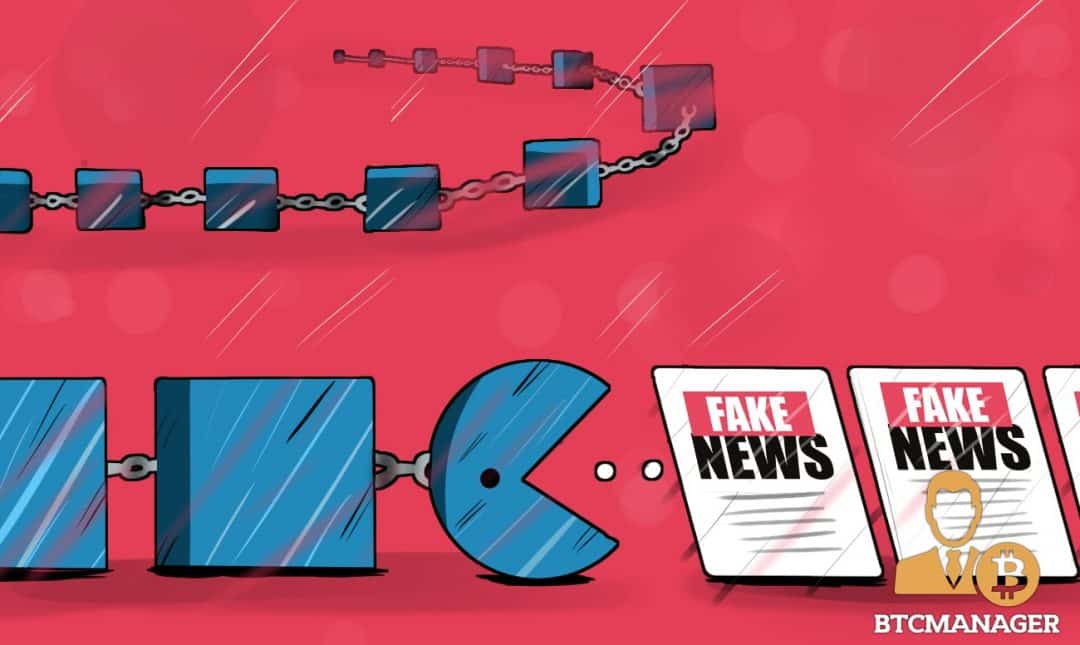Can The Blockchain Be an Effective Countermeasure Against the Spread of Fake News?

The Blockchain is a new field of technology that can offer great reliability for the diffusion of information. The FinTech Industry is focusing on areas where highly reliable information is required. For instance, the Media is in serious need of reshaping the way it traces the accuracy and origin of information and news content. Blockchain technology might be the answer. As the authorities and the media are working on a response, the momentum to utilize blockchain technology to improve reliability is increasing.
The word “fake news” became famous in the US presidential election in November when false news started to noticeably roam the net which had a lot of serious implications. Now, there is a certain disregard for Media Outlets and that is making us become doubtful to believe in everything we read. Right now, the Fintech Industry is aiming to acquire new business opportunities and ventures that will promote the diversification of business using the blockchain technology. A natural response to the problem of fake news is the emergence of fact-checkers. But on what basis are these elected or self-appointed fact-checkers to be trusted? Who will guard the guardians? Fake news, or fake history, is not something new. Every society is built on a store of publicly accessible information – a shared history – that evolves over time. But who should be assigned write-privileges to this public ledger and how can they be trusted?
The news plays a huge role in the formation of public opinion. With the pressure and great influence news has over politics and society, it can lead to many social problems if not conducted with complete integrity. Blockchain enables the development of a mechanism to verify if the news is trustworthy. By applying the Distributed Ledger Technology, we can trace the news to its origins and make sure that they are not Fake News. The advantages of Blockchain such as the difficulty of tampering, public information access, fraud prevention and much more, can certainly allow us to develop the right mechanisms to ensure Media Outlets are releasing trusted information.
In Japan, a venture that is using cryptographic technology is called Tech Bureau in Osaka City, who are planning to offer software “mijin (Mizin)” to introduce blockchains to major US media outlets. Even though this software is not developed using the Bitcoin Blockchain; the technology is pretty much the same. In this case, the Mijin software was developed on top of the NEM Blockchain. Anyone using Mijin can only write if the proper key authority is given by a person in charge, a spokesperson, a principal, or the boss or other authority key person. This means that the validity of the delivered article can be guaranteed. Also, with the Mijin software, once data is written it cannot be modified without the approval of the concerned parties, and even if it can be corrected, the history remains and can always be tracked from its first transaction ever. The entered data using the Mijin software is encrypted and shared at the same time by multiple personal computers, so it is difficult for third parties to tamper with it. Right now, several inquiries are coming to Tech Bureau in order to introduce this function.
Other ventures are also popping up. One of these ventures is developing a blockchain-based news platform which will offer a decentralized publication of collectively validated news and articles. This new platform is called Pramanika. Pramanika operates with the use of special tokens that need to be spent so that content can be submitted and broadcasted to the network. A news agency will be able to submit their articles that will be validated by a decentralized network of validator nodes that need to express their opinion on the article. Once a sufficient number of validator nodes expressed their opinions on the article, the article will be published. The published article will contain the original content and the qualified opinions expressed on a scale of authenticity. The list of validators is automatically revised from time to time, to keep only the best and the trustworthy news organizations.
Finally, on April 25 Jimmy Wales, the co-founder of Wikipedia revealed a new project devised to counter fake news. Wales believes in “news by the people and for the people” and wants “to reinvent the way that news is made.” The project is called Wikitribune and aims to bring together a wide network of journalists in an effort to offer an ad-free News site where the news verified by the community. Walles says Wikitribune incorporates the same sense of community and fact checking from Wikipedia and will provide evidence-based journalism as well. Since the project is funded by the community, Jimmy Walles is also accepting bitcoin as a funding method and may foreshadow plans to incorporate blockchain technology into the Wikitribune project.
There is no doubt that there is a need for a serious fix for mainstream media, and between different approaches and new ventures, use of the blockchain technology may be a potent tool used to disrupt the news industry.














